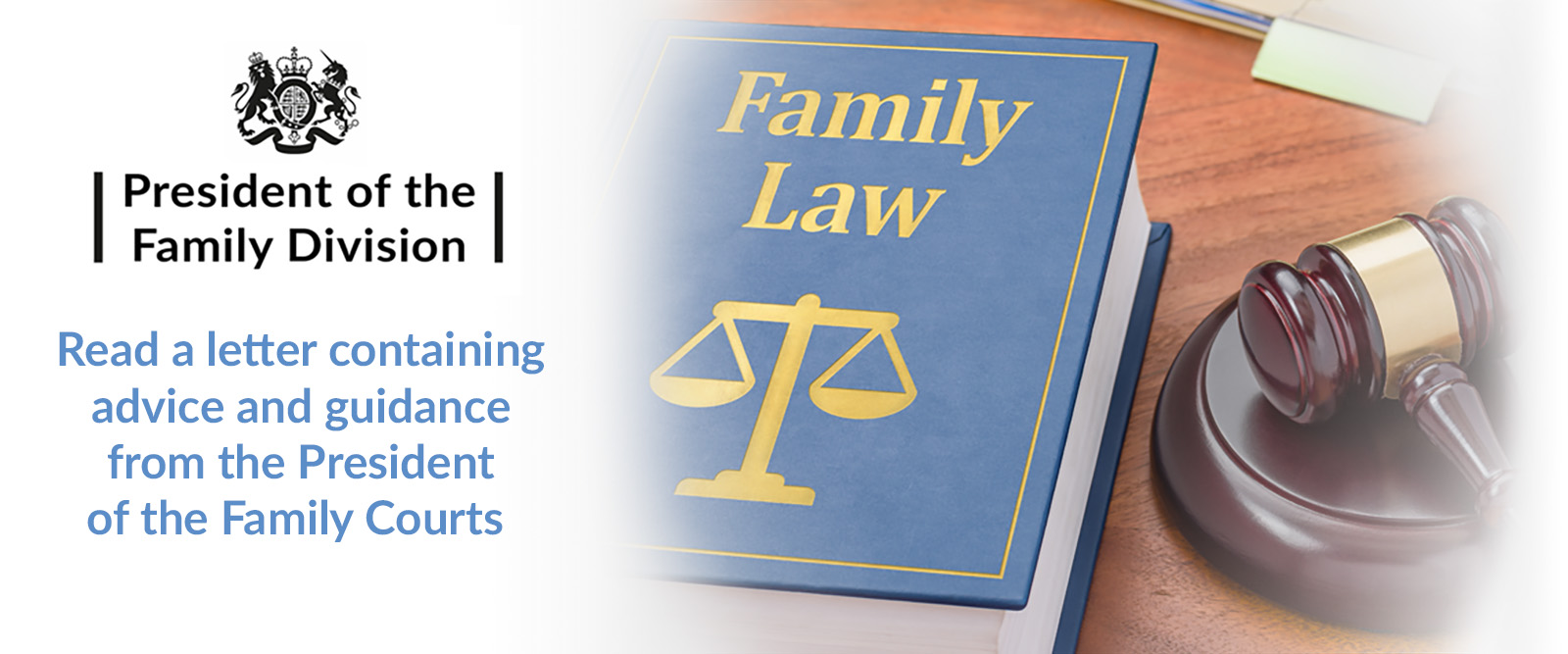
An Important Message
Dear Parent/Carer
As the most senior judge in the Family Court in England and Wales, I am writing to you because you have made an application to the court, or you have received an application which someone else has made.
Please think about these things first:
- As parents, you share responsibility for your child and have a duty to talk to each other and to make every effort to agree about how you will bring them up.
- Even when you separate this duty continues.
- The law expects you to do what is best for your child even when you may find that difficult.
- The law requires a court to presume that the involvement of a parent in a child’s life will further the child’s welfare unless the contrary is shown and, unless it is unsafe to do so – a child will normally need to have a loving, open relationship with both parents. You should try to agree the arrangements for your child. If talking to each other is difficult, help is available from a range of sources and the purpose of this letter is to point you towards them.
The options can be broken down into three broad categories:
1. ‘We need support in making an agreement’: this option can be used if you both want to make an agreement but need help from someone who is independent to help you to reach that agreement. Examples of this option are family mediation (see below) and collaborative law (your solicitor working collaboratively with the other parent’s solicitor). You can even ask a trusted friend or family member to help you informally.
2. ‘What is the likely outcome?’: if you need a firmer steer from a neutral person about what sort of arrangements a court would make if the court application continued, but you wish to still have the final say in coming to an agreement, both parents may together instruct a solicitor or barrister to give them a neutral evaluation of the likely outcome.
3. ‘We want the decision made for us’: you do not need to go to a court to get a decision, instead you can both agree to be bound by a decision made by a neutral person acting as an ‘arbitrator’. More information about all of these options can be found by searching on ‘Making child arrangements if you divorce or separate’ on the gov.uk website.”
1. Parents/carers know the child best. A judge is an expert in family justice but does not know your child as you do.
2. Parents/carers who agree arrangements themselves are more likely to stick to them; arrangements ordered by a court sometimes break down.
3. Research has shown that conflict between parents/carers is harmful to children emotionally and for their brain development. Coming to court is also stressful and likely to increase bad feelings between you and the other parent/carer, which could then impact on the child.
4. The court process may not be quick, and it may be months before a decision can be made.
The important things to know are:
1. Mediation is not relationship counselling. The purpose of mediation is to help you and your family agree specific arrangements in relation to your child(ren) For example, where a child will spend their time following a separation.
2. Mediators are trained to bring parents/carers together to reach an agreement, even if one of the parties is sceptical or resistant to mediating.
3. Where there’s a child of suitable age, they can be invited to meet the mediator and give their views on what arrangements they would like to be made, which the mediator will then discuss with you.
4. While courts will only make orders if they think this is necessary in the child’s interests, it is possible to have mediated agreements formalised through the court through a process called a ‘consent order’. You can ask your local court about this process.
The Rt Hon Sir Andrew McFarlane President of the Family Division



